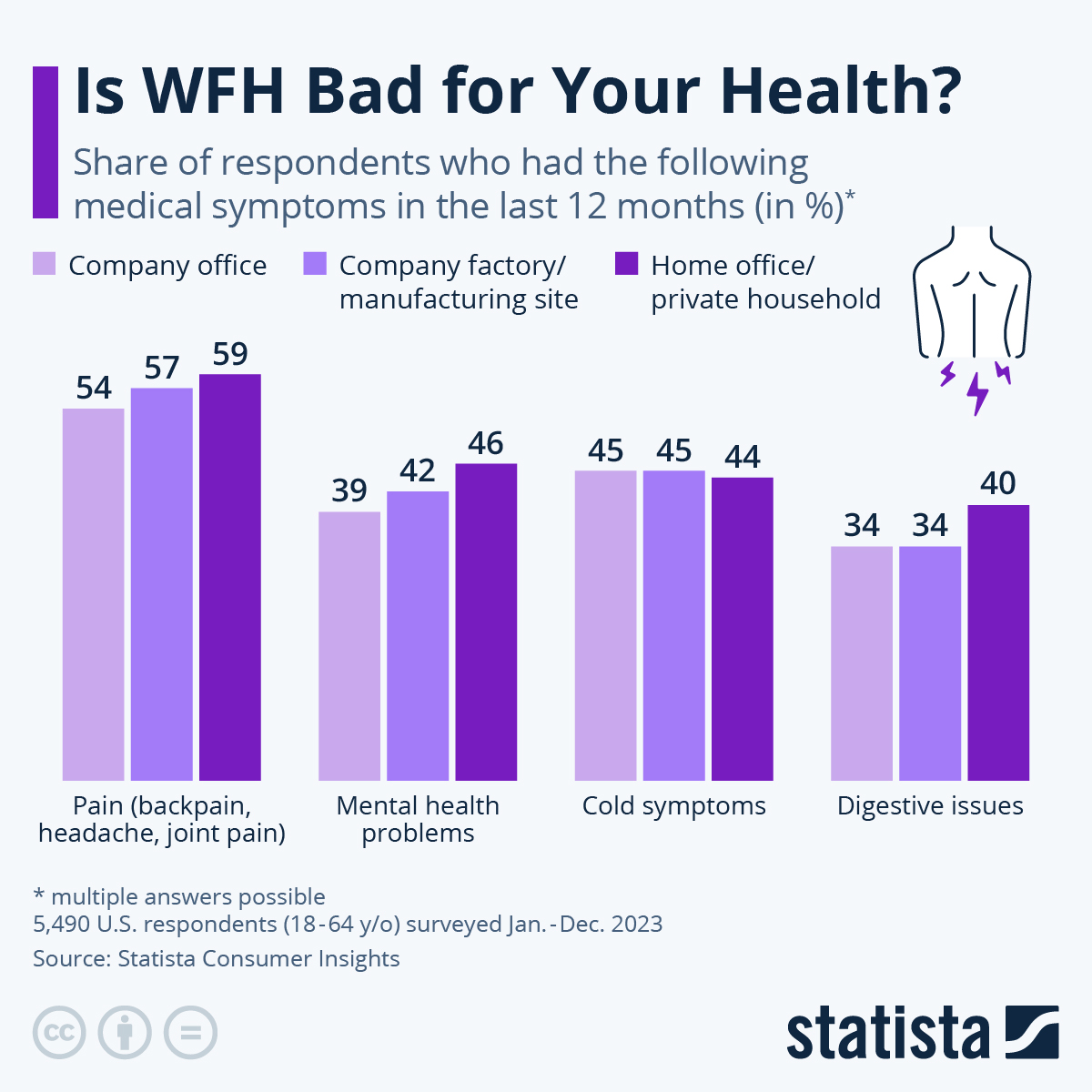Working from home: Better or worse for mental health?

StratfordProductions // Shutterstock
Working from home: Better or worse for mental health?
A woman working from home is sitting happily with her dog using a laptop.
It’s the continuous debate that plays out week after week on LinkedIn. When companies call employees back to the office, a certain percentage of them quit or express unhappiness after working remotely and successfully for an extended period. Then there is the hybrid debate. Is hybrid once or twice a week? Four times a week can be called hybrid, but it is definitely not in most people’s eyes. Only one thing is certain: The COVID-19 pandemic has forever changed the landscape of working professionals.
Many companies have fully embraced a remote model and are very successful (Shopify, Airbnb, and Microsoft), while others are slowly rewinding to pre-COVID policies (Disney, Google, and Amazon). Meta leader Mark Zuckerberg, who has also called people back to the office, had previously weighed in on the debate, saying: “People are more productive working at home than people would have expected. Some people thought that everything was just going to fall apart, and it hasn’t.”
But which environment is better for one’s mental health? The folks at Statista wanted to learn just that, so they surveyed more than 5,000 people who worked from home, an office, or a factory.
Interestingly, according to Way.com, those working from home had slightly higher rates of mental health issues (46%) than those in an office (39%) or factory (42%). Regarding catching colds, all three environments were basically the same.
Digestive issues seemed to plague the working-from-home crowd the most, at 40%, versus 34% for office workers or factory staffers.
![]()

Way.com
More than medical issues affect workers
An infographic showing graph results to the question “Is WFH Bad for Your Health?”.
While these results give a slight edge to office life, other studies looking at the well-being of remote and hybrid workers report that 88% of those surveyed are happiest with a flexible schedule. A study from Ergotron of 1,000 people revealed that 56% of those in a hybrid or remote role reported mental health improvements and better work-life balance. Physical health in remote workers was improved by 75% due to a more active work style.
There are no absolutes in the work-from-home debate. For some, it saves time commuting and allows more focus. For others, being in an office with others is best for their overall happiness.
The key in several studies seems to lie with one word: flexibility. Perhaps Virgin Group Founder/Chairman Richard Branson put it best with his perspective, “We like to give people the freedom to work where they want, safe in the knowledge that they have the drive and expertise to perform excellently whether they are at their desk or in their kitchen.”
This story was produced by Way.com and reviewed and distributed by Stacker Media.
